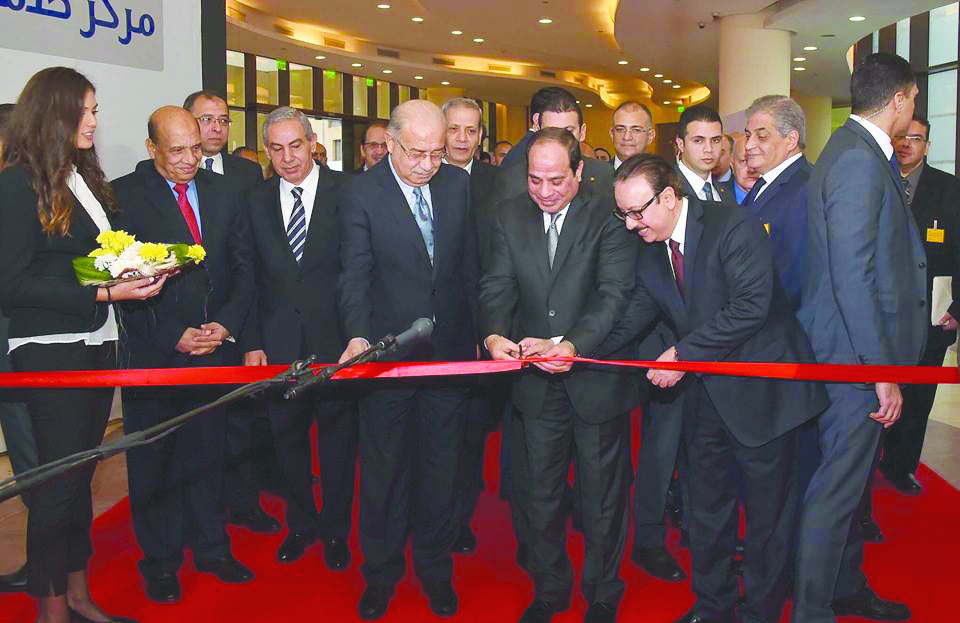By Eiman Rashed and Khaled Amin
The rally seems to be quickening its pace, Egyptian President Abdel Fatah El-Sisi initiated yet more ambitious projects – the Egyptian Knowledge Bank and two technological zones to be implemented within a year – while he attended Cairo’s Information and Communication Technology (ICT), annual conference last Sunday.
Egypt strives to maintain a respectable economy, one that has its weight in global markets, and gain back its entrenched role on both regional and international scenes. While fears about the health of the domestic economy deepened, technology came-up as a keynote solution out of such drawback. El-Sisi defined his profound interests to rejuvenate public and private sectors, and that’s through plugging wires of technology into the nation’s halted infrastructure.
The president’s appearance in ICT makes it clear how vital the role technology plays in modern-day-life is, as the government seeks to implement high-tech systems in ministries, governorates and educational institutes. When achieved -in a timeline of less than 18 months- the advances of such programme would be limitless, and average citizens would feel more dignified while dealing with the government’s civil services. The government will build smart phone applications that offer citizens comfort -filling applications, paying bills, documenting paper work- will all be provided through web services to break the traditional bureaucratic habits and routine.
The Middle East Observer had learned that the Knowledge Bank will be available starting first weeks of next January, database would be accessible to the public through computers and smart devices.
Secretary General of the Specialized Councils, Dr Tarek Shawky, assured that this bank will hold one of the biggest educational database networks in the world. The project aims to compete with global publishers like Cambridge, Oxford, National Geographic, Discovery, Reuters and others. Within such framework, Shawky pointed out that the knowledge package this bank will provide contains educational sessions in different fields of sciences -from eBooks and magazines to primary and high educational curriculum’s, database, search engines, digital visual libraries and mathematical programmes.
The Sec. Gen. added that the Knowledge Bank was set to provide academic content through the Internet, to be available for our 95 million. It would definitely benefit college students -whom waste lots of money on printed books and researches- giving them an economic privilege beside What’s noteworthy of mentioning is that Egypt had put its efforts in negotiations with publishers to reduce the content costs -reduction reached 95 per cent from original price- as there will be cooperation between the presidency, Ministry of Communication and Information Technology, as well as telecommunication companies. A symbolic 50 piaster would be added on subscribers’ phone bill.
El-Sisi’s government works hard to revolutionize many traditional principles -ones that left negative impacts on people’s behaviors and beliefs- and lift the nation towards conventional prosperity. Research and Development (R&D) should be trended out in public and private sectors, the youth should be raised to develop their own scientific thoughts and discoveries. R&D is the root of all successful achievements in the world, it is the research and assessment study that helps institutions and individuals upgrade their business approaches, as it widens people’s way of thinking and develops communities that apply its instructions. Egypt’s younger population is its fortune, efforts must be put to make-use of such an advantage, we own labour power, and that exactly what nations need to reach remarkable progress.


